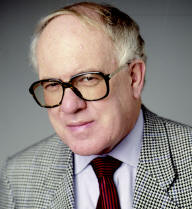The Editor's View Feb 05
Magazine

John Jenkins' monthly column from Writers' Forum magazine
Use The Da Vinci Code as a master class in writing a blockbuster
THERE comes a time, whether you are taking a master’s degree in creative writing, working through a home study course or going along to your adult education centre, when you should begin to teach yourself to write.
What you have learned about point of view, characters, themes, action and step sheets has to be practised. The more you practise the better you will become: if you have a plan and a role model.
Glance down the top ten best-sellers of paperback fiction and what do you find? The name of Dan Brown topping the list with The Da Vinci Code. Hardly surprising as when it came out in hardback the reviews were ecstatic and the word-of-mouth recommendations flew across the Atlantic to boost sales here.
Looking further down the list you will find three more titles by the same author. Now I know that success breeds success but such a feat in modern times may well be unprecedented.
Dan Brown lives in New England and has studied and taught English and Creative Writing at Phillips Exeter Academy. His other best-sellers have been Digital Fortress, Angels and Demons and Deception Point.
Brown comes from an academic background. His father was a distinguished professor of mathematics and his mother an exponent of sacred music. Hence, he grew up surrounded by the paradoxical philosophies of science and religion. His wife Blythe who is a painter and art historian helps with his research and travelled with him to Paris where they visited the Louvre as part of the preparation.
If you have not read The Da Vinci Code published by Corgi, can I suggest that now would be a good time to read it twice: once for entertainment and again for enlightenment.
The second time around read it with a pad at your side and make notes under a variety of headings. Make up your own headings or use some of these, but at the top of your pad write: How to create a best-seller. That will keep you focused on the task at hand. From your notes create a series of step sheets as if you were writing a novel.
This will not be a five-minute job but if it takes up a month of your writing time – say 80 hours, I am sure that the effort will be worthwhile.
Somebody once said – and if it was not Tom Clancy, it sounds like him – if you want to write a big story you need a big theme. So start with the theme and analyse the book. Score each heading out of 20 points and make a brief resumé of why you think a particular mark is justified.
THEME: The historical view of women in religion has been to put them in a subordinate role. How did this happen . . .is it justified according to the author . . . and what historical facts impinge on this attitude?
PLOT: On a simple level we have a crime or adventure story which centres on a search for the Holy Grail. Sub-plots abound.
RESEARCH ELEMENT: Far heavier than most novels, involving principally history, art, cryptology, the Church and secret societies.
ENTERTAINMENT LEVEL: Gripping and enthralling. Despite some of the book being outright fiction there are so many facts that the element of verisimilitude means the reader does not have to suspend belief.
ACTION AND PACE: No novel in modern times can match this one for "page turning construction" as the Bookseller would say. Each chapter seems to end on a cliff-hanger luring the reader on. The protagonists face hurdle after hurdle on their way to the climax.
CHARACTERS: A fascinating mixture but perhaps the goodies are a shade too white and the villains a little too black. Is the author crafting almost automatic film offers into the manuscript?
DIALOGUE: Test it by reading sections aloud. Does it flow? Does it fit with the characters? Will any survive the film script?
LANGUAGE: Is the author always in total control? Does the introduction of French phrases, numerical codes and esoteric phrases belonging to specialised subjects confuse or educate the reader?
OPENING: Does the beginning echo the elements of a good stage play – Curtain up! Action. How does the author achieve this?
ENDING: How has the author managed to avoid an anti-climax? Or did you feel the ending was a letdown? Did you feel you wanted to run out and buy another of his books? Would you recommend it to a friend or your reading group?
TITLE: Echoes of other great titles of adventure stories: The Bourne Identity and The Ipcress File.
Reviews from The New York Times, Chicago Tribune and Christian Science Monitor to our own papers have been fulsome in their praise. Now you have the chance to analyse it and see why. Here you will find the ingredients for a blockbuster – but can you find a theme and a way to put them together?
Next month we will give you our analysis.
John Jenkins, Publisher, Writers' Forum
Read the article about setting up WritersServices which was originally published in Writers' Forum magazine.
© Writers International Ltd 2005. Reproduced from the December-Januray edition of Writers' Forum magazine by kind permission of the editor.
